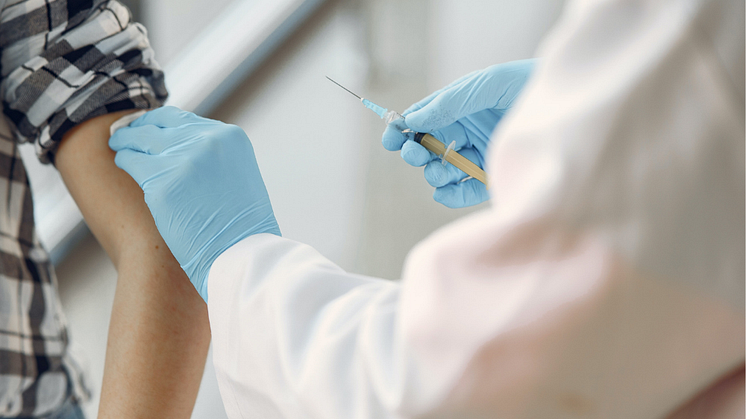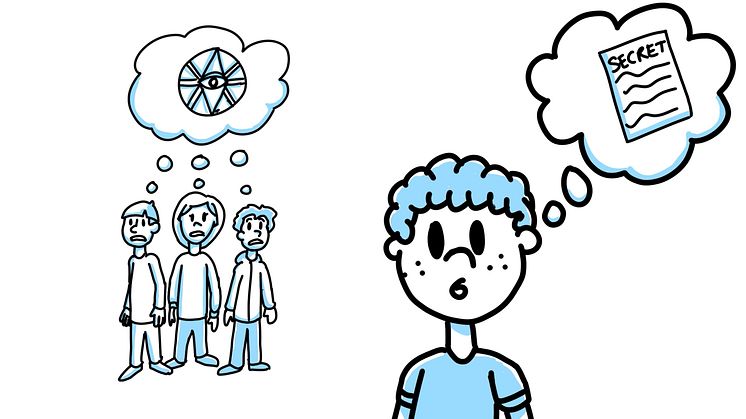
Press release -
Belief in anti-vaccination conspiracies can be cut by correcting misperceptions of what others believe – new study
Belief in anti-vaccination conspiracy theories can be reduced by correcting misperceptions of what other people believe, according to psychologists who have examined the impact of a new social intervention approach.
In a paper recently published in Group Processes and Intergroup Relations a three-part study questioned a range of people on their belief in conspiracy theories and their perceptions of what others thought. Findings showed that people overestimate others’ beliefs in conspiracy theories, and that these misperceptions are strongly related to their own personal belief.
The research was conducted by a team of psychologists including Dr Daniel Jolley, Northumbria University, Dr Robert C. Dempsey, Manchester Metropolitan University, Dr Rachel Povey, Staffordshire University and was led by Darel Cookson, from Nottingham Trent University’s School of Social Sciences.
In a second paper recently published in PLOS ONE, the research team focused specifically on parents and anti-vaccination beliefs.
In this study, more than 200 UK parents completed a questionnaire which assessed their willingness to vaccinate their children, whether they thought other parents believed anti-vaccination conspiracies, and how likely they thought others were to vaccinate their children.
Researchers then used an intervention technique called the Social Norms Approach, which works by correcting misperceptions, often by giving people feedback on how they misjudged the beliefs and behaviours of others. The team tested this approach on the group of UK parents by showing a selection of the participants the actual level of conspiracy belief among other parents, with the message that the overwhelming majority of UK parents choose to vaccinate their children.
These participants were then asked again about their anti-vaccine conspiracy beliefs and vaccination intentions immediately after the feedback and were also invited back to take the measures after six weeks.
The intervention was shown firstly to reduce how much participants thought other parents endorsed anti-vaccine conspiracy theories which, in turn, reduced their own personal conspiracy beliefs. The intervention also increased how much participants thought other parents intended to vaccinate which, in turn, increased their personal intentions to vaccinate their children.
Darel Cookson, a Lecturer at Nottingham Trent University who carried out part of the study while a PhD researcher at Staffordshire University, said: “Our method – which used the Social Norms Approach - begins with the premise that we are influenced by our perceptions of other peoples’ beliefs and behaviours, but that we often hold misperceptions of these views.
“This is the first time this approach has been tested to address anti-vaccine conspiracy beliefs, and we have shown that giving people feedback on how they’ve misjudged the beliefs and behaviours of others has the potential to tackle anti-vaccine conspiracy endorsement, which can have detrimental effects of the uptake of important vaccines.”
Dr Daniel Jolley, a senior author on the work and Senior Lecturer in Psychology at Northumbria University said: “Combatting the negative harm of conspiracy beliefs is tricky because conspiracy beliefs can be resistant to change. Our work showcasing the success of an intervention tool is noteworthy – we demonstrate how the power of social norms can be used as a way to tackle anti-vaccine conspiracy beliefs. The practical implication of this work is timely. Using such an intervention could be suggested for new or expectant parents as a pre-emptive approach.”
“It’s very promising that the immediate follow-up showed a significant reduction in participants’ anti-vaccine conspiracy beliefs. Although this change didn’t remain after six weeks, further development of the method with ‘top-up’ messaging at future intervals will mean we can measure the long-term effectiveness of the intervention,” added Cookson.
The studies have been published across two papers: "If they believe, then so shall I": Perceived beliefs of the in-group predict conspiracy theory belief has been published in the journal Group Processes & Intergroup Relations and A Social Norms Approach intervention to address misperceptions of anti-vaccine conspiracy beliefs amongst UK parents has been published in PLOS ONE.
Northumbria University’s Department of Psychology has a well-established and thriving community of internationally recognised academics producing world-class research in areas including neuroscience, language comprehension, working memory, sleep, health and wellbeing, digital communication and nutritional interventions.
Topics
Categories
Northumbria is a research-rich, business-focused, professional university with a global reputation for academic excellence. Find out more about us at www.northumbria.ac.uk --- Please contact our Media and Communications team at media.communications@northumbria.ac.uk with any media enquiries or interview requests ---









